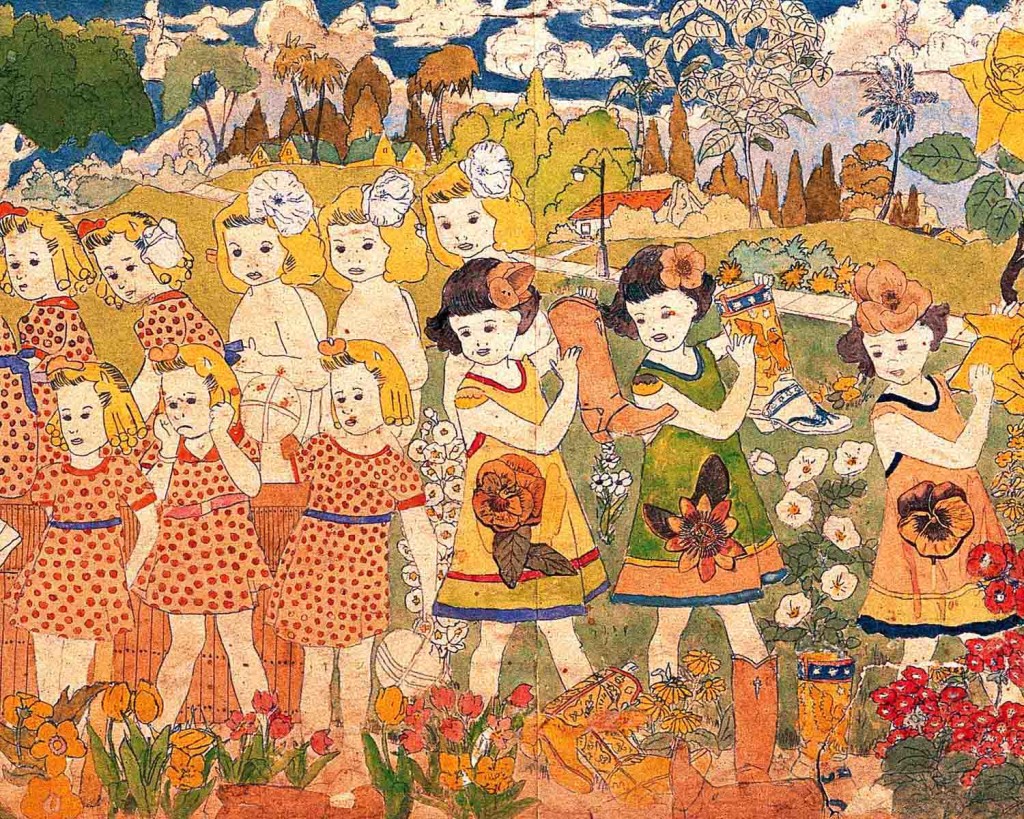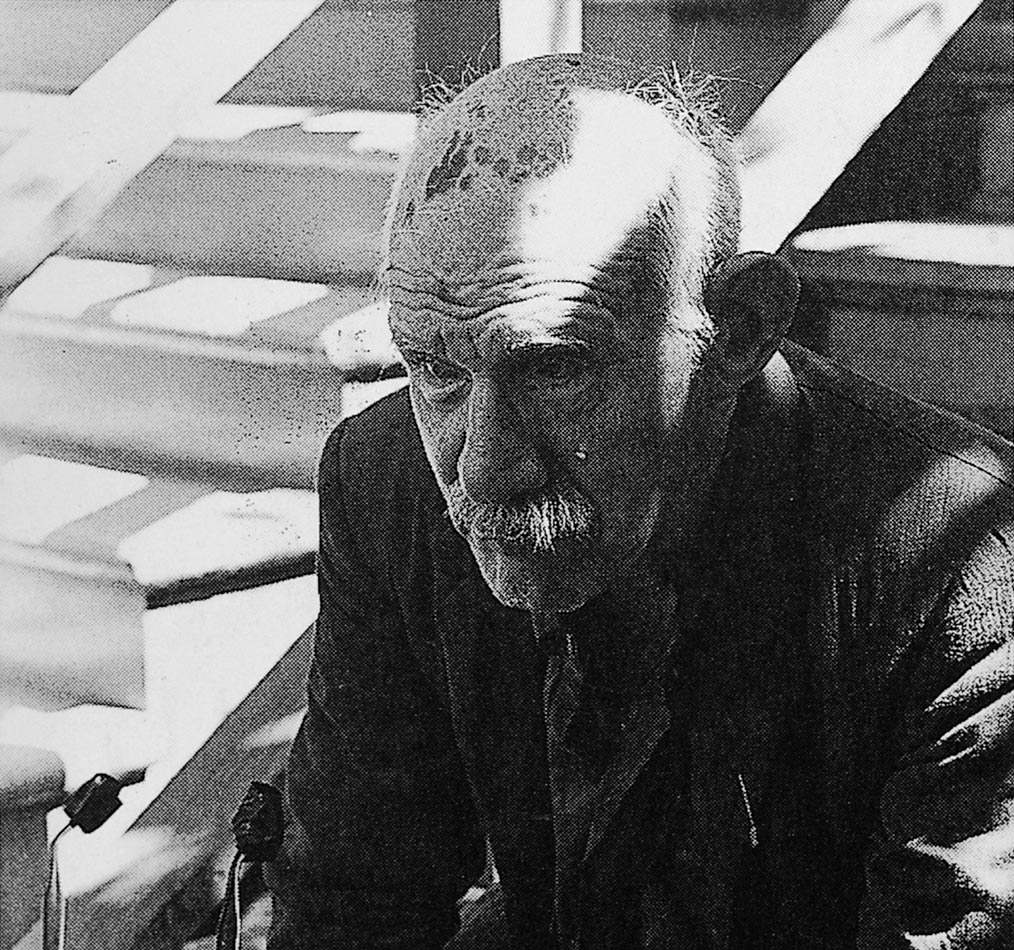Every acorn has its destiny?
The trees outside my window are nothing special. Plain linden trees you wouldn’t recognize in a line-up. They give off a nice smell when in bloom and a much-appreciated shade in summer. I guess most trees are like that - trees, with only a select few ever deemed worthy of an epithet like magnificent. Just like humans - each valuable for the good they bring, but few that really stand out.

Henry Darger art
People are like trees, thought American psychologist James Hillman, one of the rebels of the Jungian school. Each of us comes from an acorn and grows up accordingly. A linden acorn will never grow to be an oak or a fir tree. His best known work, the "Soul’s Code", is rife with examples of people who knew early on what their life’s calling was and managed to fulfill the potential inscribed in their acorn despite everything. The lives of Darwin, Truman Capote, Henry Ford, Henry Kissinger, Yehudi Menuhin or Spanish bull-fighter Manolete are all examined in terms of the calling of the acorn. Hillman is a fascinating guy, but I’ve never been comfortable with his acorn theory as he bluntly denies the role of the parents in the child’s formative years.
I was reminded of his acorn theory the other day while watching an extraordinary documentary about an extraordinary man I’ve only recently heard about, Henry Darger.

Only 3 photos of Henry Darger are known to exist. Who'd take a photo of a nobody?
Henry Darger (1892 - 1973) spent his whole life being ordinary. One of those people the world takes no notice of. A loner without any family, actually a recluse who rarely spoke to others. He spent his whole life as a janitor his neighbors would recognize from afar by his tattered coat. And yet… this man spent six decades of his life working on an autobiography, journals and a fantasy novel spanning 15,145 pages, plus hundreds of huge drawings illustrating the adventures of his characters. After work and church, for he went to Mass daily, Darger would hide in his room to work on his manuscript. For six bloody decades, night after night. Even our most prolific writers take a break, go on holiday, have dinner with their children, make love to their partners. Henry Darger had no one in his life and no distractions, not even a radio.

Imagine the people who saw him washing the floors at the hospital where he worked. Probably no one spared him a second look, let alone a word. But that man bent on his knees did not suffer for lack of company as he had his characters and a complex narrative to occupy his waking hours. It was while watching the documentary - "In the Realms of the Unreal", also the title of Darger’s novel, that I remembered Hillman’s acorn theory.
Very little is known about Henry Darger, but apparently he was smart as a kid. His misfortune was that he lost his mother when he was four and by the age of eight he was sent to an orphanage as his father’s health deteriorated. From the orphanage he was shipped to an institute for “feeble-minded” children near Chicago, which did not offer treatment, but put the children to work. Hard work, as in forced labor. Was he abused there? Since we’re talking about Catholic establishments, it’s an educated guess he was abused. What is certain is that he suffered greatly and he spent the rest of his life trying to come to terms with what happened to him. His fantasy novel is about a world where children are slaves and fight for freedom. His writing was therapeutic as in that world Henry Darger gets to be a hero fighting to save the children.

As it happens, last week I watched a miniseries about an orphan who was abused in a Catholic institution… and grew up to be a drunk with no special talents.
What made Darger so driven to write and draw all his life? Was he a bit crazy? Probably, but those who knew him said he was the good type of crazy. Was it the destiny inscribed in his acorn? With better luck in early life, maybe he would have grown up to be one of the great artists of the 20th century. (Or maybe not.) He became famous after his death, with his drawing housed in various US museums and books written about his art. It was sheer luck that his landlord was a nice man who took the time to examine the contents of his room. As Darger was also a bit of a hoarder, his landlord could’ve thrown out all the garbage and no one would have known Darger’s story.
When reading Hillman’s book one feels the need to ask - was there a special destiny written in my acorn? A destiny I failed to fulfill? I don’t think so. Providing shade or shelter is good enough a destiny for most trees.
After all, in a world full of Mozarts there would be no Mozart!

=
Knowing ones purpose and being determined at an early age is very crucial to being a great person.
Thanks for sharing
Fascinating! It always amazes me how some victims can turn tragedy into something of value while quite a number of victims go on to be abusers themselves and spread the misery further. I need to read this book. Thanks for the introduction!
Good luck finding the book! As far as I can tell only the autobiography was published, the novel I don't think so... or at least I wasn't able to find it. I think the novel would be very interesting to understand this tortured man. The documentary is great as it gives you an idea about the fantasy world he created.